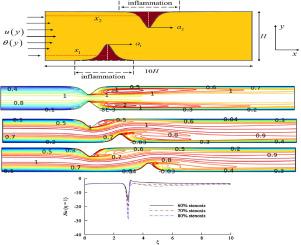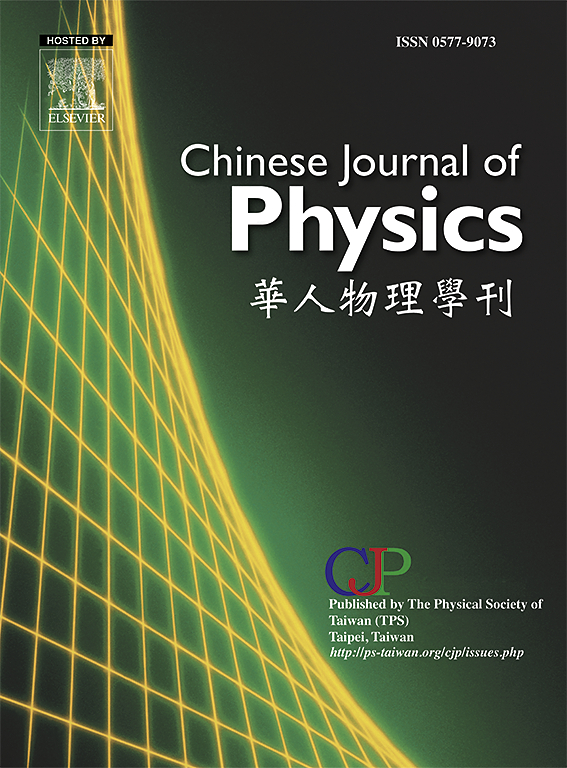Computational investigations of nanofluid blood flow in stenosed artery with effects of inflammation and viscous dissipation via finite element method
IF 4.6
2区 物理与天体物理
Q1 PHYSICS, MULTIDISCIPLINARY
引用次数: 0
Abstract
In this study, we investigate the problem of blood flow through an artery with stenosis, focusing on the effects of inflammation. The flow profile is assumed to be parabolic, and both inflamed and non-inflamed states of stenosis are considered. The governing dimensionless equations are solved using the finite element method. Flow structures and temperature distributions are illustrated using streamlines and isothermal lines. The local Nusselt number is analyzed to understand its significance. The primary objective of this research is to analyze the behavior of nanofluid in blood flow and the associated heat transfer characteristics within an artery, both in the presence and absence of inflamed stenosis. This analysis will take into account the effects of inflammation and viscous dissipation. The finding reveals that the highest temperature gradient is obtained at the stenosis peak. The Re affects the velocity field and increases the kinetic energy. Results show that flow symmetry breaks when stenosis positions are changed. It is found that the Nusselt number is the increasing function of nanoparticle concentration, stenosis peak, viscous dissipation, and Reynolds number.

通过有限元法计算研究受炎症和粘性耗散影响的狭窄动脉中的纳米流体血流
在本研究中,我们研究了血液流经狭窄动脉的问题,重点是炎症的影响。假设血流轮廓为抛物线形,并考虑了血管狭窄的炎症和非炎症状态。采用有限元法求解了无量纲方程。使用流线和等温线说明了流动结构和温度分布。对局部努塞尔特数进行了分析,以了解其重要性。这项研究的主要目的是分析纳米流体在血液流动中的行为,以及在动脉内存在和不存在发炎狭窄时的相关传热特性。该分析将考虑炎症和粘性耗散的影响。研究结果表明,狭窄峰值处的温度梯度最大。Re 会影响速度场并增加动能。结果表明,当狭窄位置改变时,流动的对称性会被打破。研究发现,努塞尔特数是纳米颗粒浓度、狭窄峰值、粘性耗散和雷诺数的递增函数。
本文章由计算机程序翻译,如有差异,请以英文原文为准。
求助全文
约1分钟内获得全文
求助全文
来源期刊

Chinese Journal of Physics
物理-物理:综合
CiteScore
8.50
自引率
10.00%
发文量
361
审稿时长
44 days
期刊介绍:
The Chinese Journal of Physics publishes important advances in various branches in physics, including statistical and biophysical physics, condensed matter physics, atomic/molecular physics, optics, particle physics and nuclear physics.
The editors welcome manuscripts on:
-General Physics: Statistical and Quantum Mechanics, etc.-
Gravitation and Astrophysics-
Elementary Particles and Fields-
Nuclear Physics-
Atomic, Molecular, and Optical Physics-
Quantum Information and Quantum Computation-
Fluid Dynamics, Nonlinear Dynamics, Chaos, and Complex Networks-
Plasma and Beam Physics-
Condensed Matter: Structure, etc.-
Condensed Matter: Electronic Properties, etc.-
Polymer, Soft Matter, Biological, and Interdisciplinary Physics.
CJP publishes regular research papers, feature articles and review papers.
 求助内容:
求助内容: 应助结果提醒方式:
应助结果提醒方式:


